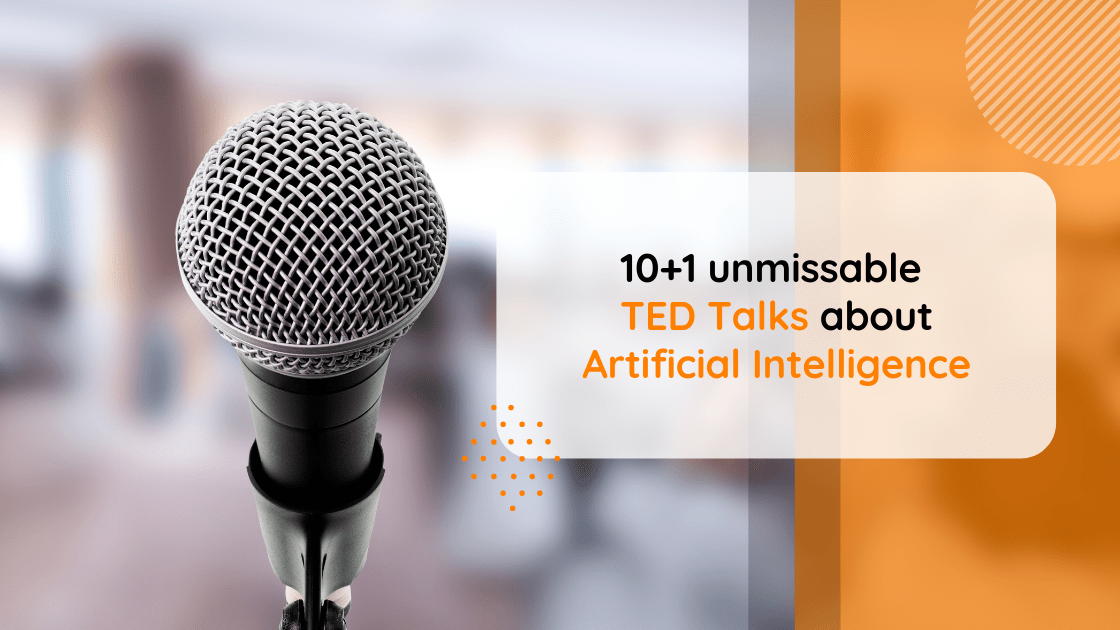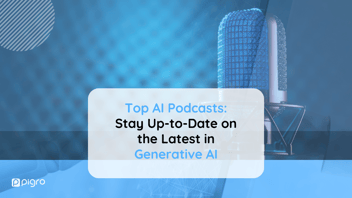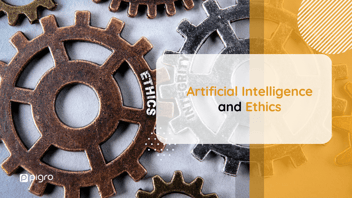What are TED Talks
TED, known also as TED Talks or TED Conference, was born in 1984 as a conference cycle to analyse three topics: technology, entertainment, and design (if you were wondering: what does TED stand for in TED talks? It’s the acronym from the initials).
As time passes, it becomes a worldwide phenomenon and, indeed, increases the number of topics that today are more than 400.
TED’s manager, Chris Anderson, in his book “TED Talks: The Official TED Guide to Public Speaking” says that TED’s mission is to disseminate ideas, and it does not matter if this spread comes from TED or TEDx, or in another way. However, it is always a pleasure when someone organises conferences on TED, by referring to various typologies inspired by the one invented in 1984. Now they all are very popular, such as TEDx, a TED event organised independently.
On www.ted.com there are more than 3500 talks done worldwide in various TED talks events, some of which, some of the best known, have more than 50 million views.
One of the faced topics, which in the past years has been the subject of many TEDs, is Artificial Intelligence.
Find out the top TED talks on Artificial Intelligence: Pigro has selected 10+1 TEDs that talk about this evolving topic.
10+1 TED Talks AI to approach Artificial Intelligence
1. The inside story of ChatGPT's astonishing potential - Greg Brockman (TED2023)
At the forefront of technological advancements, Greg Brockman, the co-founder of OpenAI, takes the TED stage to delve into the fundamental design principles behind ChatGPT. With his captivating talk, he unveils the incredible potential of this revolutionary chatbot that has already made waves worldwide. As the audience watches in awe, Brockman demonstrates some mind-boggling, yet unreleased, plug-ins that showcase the cutting-edge capabilities of ChatGPT.
The audience is left astounded by the capabilities of this powerful AI tool, but there are also concerns raised by many in the tech industry and beyond about the potential risks associated with its widespread use. To address these concerns, TED's very own Chris Anderson joins Brockman on stage to delve into the timeline of ChatGPT's development. Together, they engage in a thought-provoking discussion about the ethical implications and responsibilities that come with unleashing such a powerful tool into the world.
The conversation between Brockman and Anderson is enlightening, as they explore the challenges of ensuring the responsible use of AI technology. They discuss the need for transparency, accountability, and safeguards to prevent any misuse or unintended consequences. The audience is left with a deeper understanding of both the incredible potential and the ethical considerations surrounding AI.
Greg Brockman's TED talk not only showcases the groundbreaking capabilities of ChatGPT but also sparks a crucial conversation about the responsible development and deployment of AI. It serves as a reminder that while AI technology can revolutionize various aspects of our lives, it is essential to approach its implementation with caution and a strong ethical framework.
2. The danger of AI is weirder than you think – Janelle Shane (TED2019)
“The danger of artificial intelligence isn't that it's going to rebel against us, but that it's going to do exactly what we ask it to do”
In her TED Talk, Janelle Shane explains what are the problems in AI use and how far is from the common imagination, also tied to the cinematographic view of the topic that considers the AI decline in robots that take power on humans.
3. Why people and AI make good business partners - Shervin Khodabandeh (TED@BCG 2022)
In one of the latest TED talks, AI expert Shervin Khodabandeh asks “What happens when the data-driven capabilities of AI are combined with human creativity and ingenuity?”
The answer lights up a lot of opportunities that this futuristic collaboration could bring to the workplace, in a scenario where people and machines can redesign companies and learn from each other.
4. How AI is making it easier to diagnose disease – Pratik Shah (TEDGlobal 2017)
There are diseases, like the infective ones and cancer, that degenerate very quickly and that, to be treated, need an untimely diagnosis.
This Talk is about medicine and AI: Pratik Shah tells how her research group has tried to simplify traditional AI systems to reduce costs and time of use in healthcare.
5. AI and democracy: instruction for use – Diletta Milana (TEDxTorino)
During TEDx in Turin in 2020, Diletta Milana studies some important and controversial topics, like the connection between AI and politics. What are the characteristics that an ideal governor should have? According to Diletta Milana, they are rationality, expertise, awareness of the past but at the same time being visionary, forward-looking, transparent.
AI has similar characteristics! During the Italy TED Talk, this parallelism is analysed, between realities and fantastic theories, to understand the advantages of AI use in decisional processes.
6. AI to project future cities – Bruno Lepri (TEDxTrento)
“In 2050 two people out of three will live in the cities”, tells Bruno Lepri at the beginning of his TED Italy and he makes immediately clear the importance of projecting future cities. How would AI new techniques be used to project safe, functional, creative, livable and happy cities?
Starting from the concept of the “scale equation” (if a city becomes twice bigger, will become more than twice wealthier, more than twice more creative) explains how he, with his research group, studied the topic to understand this law deeply, asking himself which criteria make a city more livable and which do not.
7. Women’s contribution to artificial intelligence (AI) – Darya Majidi (TEDxBolognaWomen)
Darya Majidi brings on the TED Talk stage gender inequity and sexism, which touches AI too. “Amazon and the sexist artificial intelligence: it didn’t hire women”, says the title of an article in the Italian newspaper “Corriere della Sera” of 2018, according to which software used to catch the best talents in the technological field favoured male curricula, basing on the hiring trend of the past 10 years.
The AI sector is mainly in the hands of men and Darya Masjidi analyses the causes, starting from cultural heritage to family education.
8. The real reason to be afraid of Artificial Intelligence – Peter Haas (TEDxDirigo)
Peter Haas starts his TED Talk AI by showing a photograph of a dog in a snowy landscape, and explaining that it has been mistakenly identified by an algorithm with a wolf.
The cause? In the majority of the photos given to the algorithm, the wolf has been eternalized in snowy landscapes.
Starting from this example, Peter Haas guides the audience through an analysis of risks linked to the use of AI in some areas.
But what happened in this case, can also occur in areas where what is “decided” by the AI is a determinant for the life of people, such as the case of the COMPAS algorithm, used for establishing the risk of relapse.
9. How to keep human bias out of AI – Kriti Sharma (TEDxWarwick)
Siri, Alexa and Cortana are voice assistants that the majority of us use daily. Programmed to be “obeyed slaves”, not randomly they all have female names.
Starting from this “daily” example Kriti Sharma analyses how our bias influences AI every day and what we can do to avoid it.
10. How AI can save our humanity – Kai-Fu Lee (TED2018)
Kai-Fu Lee tells his story movingly and ironically, made of total self-denial for work and neglect towards the family.
And how, being a computer technician, he touched with his hands the changes that the AI will lead to, these including the elimination of repetitive jobs.
According to Kai-Fu Lee, this will be our safety! By elimination of routine jobs, in fact, it will be possible to implement those sectors that are underdeveloped but that hold an essential role in our lives, dedicating ourselves to what requires love, compassion or empathy.
11. Artificial Intelligence and Blockchain. A virtuous collaboration – Giuseppe Bertone (TEDxTrento)
Giuseppe Bertone talks about artificial intelligence starting from the history of its evolution to reach peer-to-peer technologies.
Explaining how the internet has become an increasingly centralized network, he talks about Blockchain, which he describes as “a ledger of information where every actor can write something. And […] you don’t need a central entity to govern this type of network.
These Ted Talks, concise and within everyone's reach, can be the starting point for approaching Artificial Intelligence, sometimes seen as something complex and inaccessible.
Also, they allow enthusiasts of the sector to explore the various facets of AI, which is increasingly present in our lives.
And if that’s not enough, on the ted.com website there is also a section dedicated to TED talks podcasts, where you can find interesting ideas about technology and much more!
Read also: Top 7 podcasts on Artificial Intelligence
Best books on AI to discover its history and news
Do you want more information on Pigro? Contact us!



